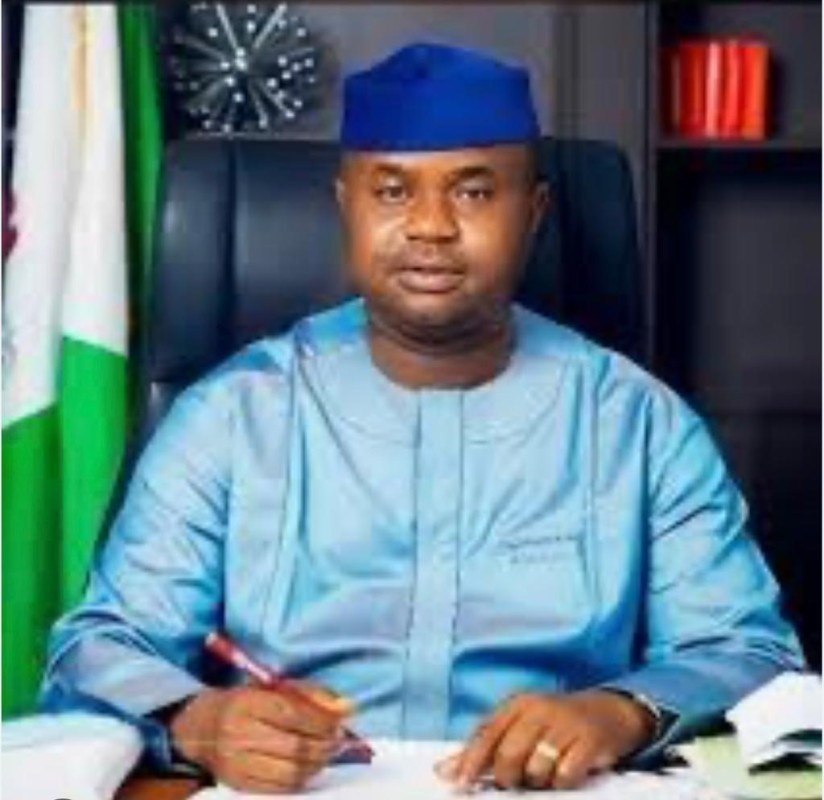Mr. Zacch Adedeji, the recently appointed Acting Chairman of the Federal Inland Revenue Service (FIRS), has unveiled an ambitious plan for the federal government.
He announced their target of achieving an 18 percent tax-to-gross domestic product (GDP) ratio within the next three years.
Mr. Adedeji made this declaration as he assumed his new role, succeeding Mr. Muhammad Nami, who had been directed by President Bola Tinubu to take a three-month pre-retirement leave before his formal departure in December of this year.

“Our vision is bold – we aspire to surpass Africa’s average tax-to-GDP ratio of 16.5 percent and reach an impressive 18 percent within three years,” he emphasised.
“By doing so, we aim to reduce our nation’s reliance on borrowing and ensure long-term financial stability.”
Currently, Nigeria has a tax-to-GDP ratio of approximately 10.8 percent, making it one of the lowest tax generators globally. This is partly due to various tax rebates and widespread tax evasion practices, which have persisted despite limited revenue streams. In 2022, tax revenues increased by 56 percent to a record N10 trillion. However, the previous administration, under President Buhari, left behind a staggering N77 trillion debt burden.
Earlier this month, the budget office revealed that the federal government allocated a significant portion of its N4.06 trillion revenues, up to 99 percent, to service its debt during the first half of the year. Mr. Adedeji, however, remains optimistic about reversing this trend by leveraging data, innovation, and technology through collaborative efforts with stakeholders.
“As we chart our path forward, FIRS is dedicated to placing innovation, technology, and fresh ideas at the forefront of our operations. This strategic focus will enable us to enhance efficiency, combat revenue leakage, and strengthen coordination and accountability within our organisation,” he emphasised.
“Our ultimate goal is to foster voluntary tax compliance by establishing a modern, reliable tax system that garners the trust and respect of all stakeholders. Through this approach, we aim to create an environment where taxpayers willingly fulfill their civic duties.”

Mr. Adedeji, who had recently assumed his new role after a brief tenure as President Tinubu’s Special Adviser on revenue, issued a stern warning to those who were neglecting their tax obligations, emphasising that the FIRS would diligently uphold its responsibilities.
In his statement, he declared: “We will establish a robust enforcement framework aimed at deterring tax evaders effectively, all the while ensuring fairness and transparency in our procedures. A fundamental element of our mission is to enlighten taxpayers about the significance of their civic duty. We are fully committed to simplifying our tax system, making it easily accessible and understandable, thereby encouraging voluntary tax compliance and instilling a sense of civic responsibility.”
He stated: “High-quality data will be the foundation of our operations, enabling us to assess our progress, make informed decisions, and uphold the highest standards of accountability. We understand that data-driven strategies are crucial to our success.”
During his address, Mr. Adedeji expressed his concern about a pressing revenue crisis, with a staggering 96 percent of government revenue being channeled towards servicing debts.
“This harsh reality demands swift and resolute action on our part. Delay is not an option; we must take decisive steps to reverse this alarming trend. In our pursuit of a more prosperous fiscal future, we are firmly committed to aligning ourselves with President Tinubu’s esteemed Fiscal Policy and Tax Reforms Committee. This collaboration will empower us to shape a prosperous fiscal landscape that fosters our nation’s growth and development,” he also said.
Furthermore, he made a pledge to maintain an open-door policy and actively engage with stakeholders to construct a formidable tax administration collaboratively. The ultimate goal was to build an institution that would serve as a shining example of excellence in its field.
He emphasised the paramount importance of integrity, confidentiality, professionalism, and fairness, referring to them as ‘indispensable’principles in serving the nation.
“These values will be our unwavering compass, directing our actions and interactions as we wholeheartedly pursue our mission,” he vowed.


